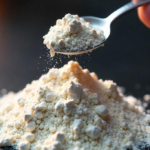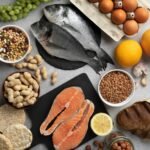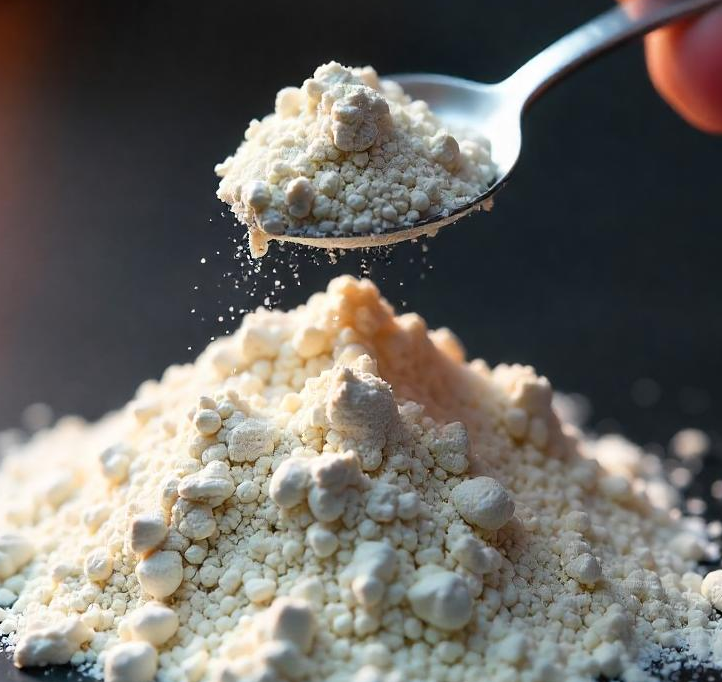In the ever-evolving world of health and fitness, one supplement has been gaining significant attention for its potential to enhance both overall well-being and athletic performance: nitric oxide boosters. These supplements have sparked interest among athletes, fitness enthusiasts, and health-conscious individuals alike. But what exactly is nitric oxide, and how can supplements that boost its production benefit our health and performance? Let’s dive deep into the science and discover the remarkable potential of nitric oxide supplements.
Understanding Nitric Oxide: The Molecule Behind the Magic
Nitric oxide (NO) is a simple molecule composed of one nitrogen atom and one oxygen atom. Despite its simplicity, it plays a crucial role in various physiological processes within our bodies. Discovered in the 1980s, nitric oxide was named the “Molecule of the Year” by Science magazine in 1992, highlighting its significance in biological systems (Ignarro et al., 1987).
In the human body, nitric oxide acts as a signaling molecule, facilitating communication between cells. It’s produced naturally by the endothelium, the inner lining of blood vessels, and plays a vital role in vasodilation – the widening of blood vessels. This process is essential for regulating blood flow, blood pressure, and oxygen delivery to tissues throughout the body (Förstermann & Sessa, 2012).
The Rise of Nitric Oxide Supplements
While our bodies produce nitric oxide naturally, various factors such as age, diet, and lifestyle can affect its production. This realization led to the development of nitric oxide supplements, designed to boost the body’s NO levels and enhance its associated benefits.
These supplements typically contain precursors to nitric oxide, such as L-arginine, L-citrulline, or nitrates from beetroot juice. When consumed, these compounds are converted into nitric oxide within the body, potentially leading to a range of health and performance benefits (Bescós et al., 2012).
Health Benefits of Nitric Oxide Supplements
- Cardiovascular Health
One of the most well-documented benefits of nitric oxide supplements is their positive impact on cardiovascular health. By promoting vasodilation, these supplements can help:
- Lower blood pressure: Several studies have shown that nitric oxide supplements, particularly those containing L-arginine or beetroot juice, can significantly reduce both systolic and diastolic blood pressure (Kapil et al., 2015).
- Improve endothelial function: NO plays a crucial role in maintaining the health of the endothelium, which is essential for overall cardiovascular health (Lundberg et al., 2015).
- Reduce the risk of heart disease: By improving blood flow and reducing the workload on the heart, NO supplements may help decrease the risk of cardiovascular diseases (Bai et al., 2009).
Enhanced Exercise Performance
Athletes and fitness enthusiasts have been particularly drawn to nitric oxide supplements due to their potential to boost exercise performance. The benefits in this area include:
- Increased exercise tolerance: NO supplements have been shown to enhance exercise tolerance, allowing individuals to work out for longer periods before experiencing fatigue (Bailey et al., 2009).
- Improved oxygen utilization: By enhancing blood flow, these supplements may improve the delivery of oxygen and nutrients to working muscles, potentially boosting endurance and reducing recovery time (Jones, 2014).
- Reduced oxygen cost of exercise: Some studies suggest that NO supplements can reduce the amount of oxygen needed to perform a given amount of work, effectively making exercise more efficient (Larsen et al., 2007).
Cognitive Function
Emerging research suggests that nitric oxide may also play a role in cognitive function and brain health:
- Enhanced blood flow to the brain: By promoting vasodilation, NO supplements may improve cerebral blood flow, potentially enhancing cognitive performance (Presley et al., 2011).
- Neuroprotective effects: Some studies indicate that nitric oxide may have neuroprotective properties, potentially reducing the risk of neurodegenerative diseases (Calabrese et al., 2007).
Immune System Support
Nitric oxide plays a complex role in the immune system, and some research suggests that NO supplements may offer immune-boosting benefits:
- Antimicrobial properties: NO has been shown to have antimicrobial effects against various pathogens, potentially enhancing the body’s ability to fight off infections (Bogdan, 2015).
- Regulation of immune responses: Nitric oxide helps regulate various aspects of the immune system, including the function of immune cells and the inflammatory response (Tripathi et al., 2007).
Performance Benefits for Athletes
For athletes and active individuals, the potential performance-enhancing effects of nitric oxide supplements are particularly intriguing:
Improved Endurance
Several studies have demonstrated that NO supplements, particularly those containing beetroot juice, can enhance endurance performance:
- A study published in the Journal of Applied Physiology found that beetroot juice supplementation improved time to exhaustion during high-intensity exercise by 15-25% (Bailey et al., 2009).
- Another study in elite cyclists showed that beetroot juice supplementation improved time trial performance over both 4 and 16.1 km distances (Lansley et al., 2011).
Enhanced Power Output
Some research suggests that NO supplements may also boost power output during high-intensity exercise:
- A study on elite rowers found that acute beetroot juice supplementation increased peak power output and improved performance in repeated sprints (Bond et al., 2012).
Faster Recovery
By improving blood flow and potentially reducing exercise-induced inflammation, NO supplements may aid in post-exercise recovery:
- Research has shown that L-citrulline supplementation can reduce muscle soreness and improve recovery of muscle function after intense exercise (Pérez-Guisado & Jakeman, 2010).
Potential Side Effects and Considerations
While nitric oxide supplements are generally considered safe for most people, it’s important to be aware of potential side effects and considerations:
- Gastrointestinal discomfort: Some people may experience digestive issues such as bloating or diarrhea, particularly with L-arginine supplements.
- Blood pressure interactions: Individuals taking medication for high blood pressure should consult with a healthcare provider before using NO supplements, as they may enhance the effects of these medications.
- Headaches: Some users report experiencing headaches, especially when first starting supplementation.
- Safety during pregnancy: Pregnant women should consult with their healthcare provider before using NO supplements, as their safety during pregnancy has not been well-established.
Choosing the Right Nitric Oxide Supplement
With the variety of NO supplements available on the market, it’s essential to choose a high-quality product:
- Look for reputable brands that undergo third-party testing.
- Consider the specific form of NO precursor (L-arginine, L-citrulline, or beetroot extract) based on your goals and preferences.
- Pay attention to dosage recommendations and start with lower doses to assess your tolerance.
- Consider supplements that combine NO precursors with other beneficial ingredients like antioxidants or amino acids for synergistic effects.
Conclusion : Harnessing the Power of Nitric Oxide
The growing body of research on nitric oxide supplements suggests that they hold significant promise for enhancing both health and athletic performance. From supporting cardiovascular health and boosting exercise performance to potentially improving cognitive function and immune support, the benefits of these supplements are wide-ranging and exciting.
However, as with any supplement, it’s crucial to approach nitric oxide boosters with a balanced perspective. While they can be a valuable addition to a healthy lifestyle and training regimen, they should not be viewed as a magic bullet. A well-rounded approach that includes a nutritious diet, regular exercise, and adequate rest remains the foundation of good health and optimal performance.
As research in this field continues to evolve, we can expect to gain even more insights into the potential of nitric oxide supplements. For now, individuals interested in exploring these supplements should do so under the guidance of a healthcare professional, especially if they have pre-existing health conditions or are taking medications.
By understanding the science behind nitric oxide and making informed choices about supplementation, we can potentially unlock new levels of health and performance, paving the way for improved well-being and athletic achievement.
Written by : Farokh Shabbir
References
- Ignarro, L. J., Buga, G. M., Wood, K. S., Byrns, R. E., & Chaudhuri, G. (1987). Endothelium-derived relaxing factor produced and released from artery and vein is nitric oxide. Proceedings of the National Academy of Sciences, 84(24), 9265-9269.
- Förstermann, U., & Sessa, W. C. (2012). Nitric oxide synthases: regulation and function. European Heart Journal, 33(7), 829-837.
- Bescós, R., Sureda, A., Tur, J. A., & Pons, A. (2012). The effect of nitric-oxide-related supplements on human performance. Sports Medicine, 42(2), 99-117.
- Kapil, V., Khambata, R. S., Robertson, A., Caulfield, M. J., & Ahluwalia, A. (2015). Dietary nitrate provides sustained blood pressure lowering in hypertensive patients: a randomized, phase 2, double-blind, placebo-controlled study. Hypertension, 65(2), 320-327.
- Lundberg, J. O., Gladwin, M. T., & Weitzberg, E. (2015). Strategies to increase nitric oxide signalling in cardiovascular disease. Nature Reviews Drug Discovery, 14(9), 623-641.
- Bai, Y., Sun, L., Yang, T., Sun, K., Chen, J., & Hui, R. (2009). Increase in fasting vascular endothelial function after short-term oral L-arginine is effective when baseline flow-mediated dilation is low: a meta-analysis of randomized controlled trials. The American Journal of Clinical Nutrition, 89(1), 77-84.
- Bailey, S. J., Winyard, P., Vanhatalo, A., Blackwell, J. R., DiMenna, F. J., Wilkerson, D. P., … & Jones, A. M. (2009). Dietary nitrate supplementation reduces the O2 cost of low-intensity exercise and enhances tolerance to high-intensity exercise in humans. Journal of Applied Physiology, 107(4), 1144-1155.
- Jones, A. M. (2014). Dietary nitrate supplementation and exercise performance. Sports Medicine, 44(1), 35-45.
- Larsen, F. J., Weitzberg, E., Lundberg, J. O., & Ekblom, B. (2007). Effects of dietary nitrate on oxygen cost during exercise. Acta Physiologica, 191(1), 59-66.
- Presley, T. D., Morgan, A. R., Bechtold, E., Clodfelter, W., Dove, R. W., Jennings, J. M., … & Miller, G. D. (2011). Acute effect of a high nitrate diet on brain perfusion in older adults. Nitric Oxide, 24(1), 34-42.
- Calabrese, V., Mancuso, C., Calvani, M., Rizzarelli, E., Butterfield, D. A., & Stella, A. M. G. (2007). Nitric oxide in the central nervous system: neuroprotection versus neurotoxicity. Nature Reviews Neuroscience, 8(10), 766-775.
- Bogdan, C. (2015). Nitric oxide synthase in innate and adaptive immunity: an update. Trends in Immunology, 36(3), 161-178.
- Tripathi, P., Tripathi, P., Kashyap, L., & Singh, V. (2007). The role of nitric oxide in inflammatory reactions. FEMS Immunology & Medical Microbiology, 51(3), 443-452.
- Lansley, K. E., Winyard, P. G., Bailey, S. J., Vanhatalo, A., Wilkerson, D. P., Blackwell, J. R., … & Jones, A. M. (2011). Acute dietary nitrate supplementation improves cycling time trial performance. Medicine & Science in Sports & Exercise, 43(6), 1125-1131.
- Bond, H., Morton, L., & Braakhuis, A. J. (2012). Dietary nitrate supplementation improves rowing performance in well-trained rowers. International Journal of Sport Nutrition and Exercise Metabolism, 22(4), 251-256.
- Pérez-Guisado, J., & Jakeman, P. M. (2010). Citrulline malate enhances athletic anaerobic performance and relieves muscle soreness. The Journal of Strength & Conditioning Research, 24(5), 1215-1222.











